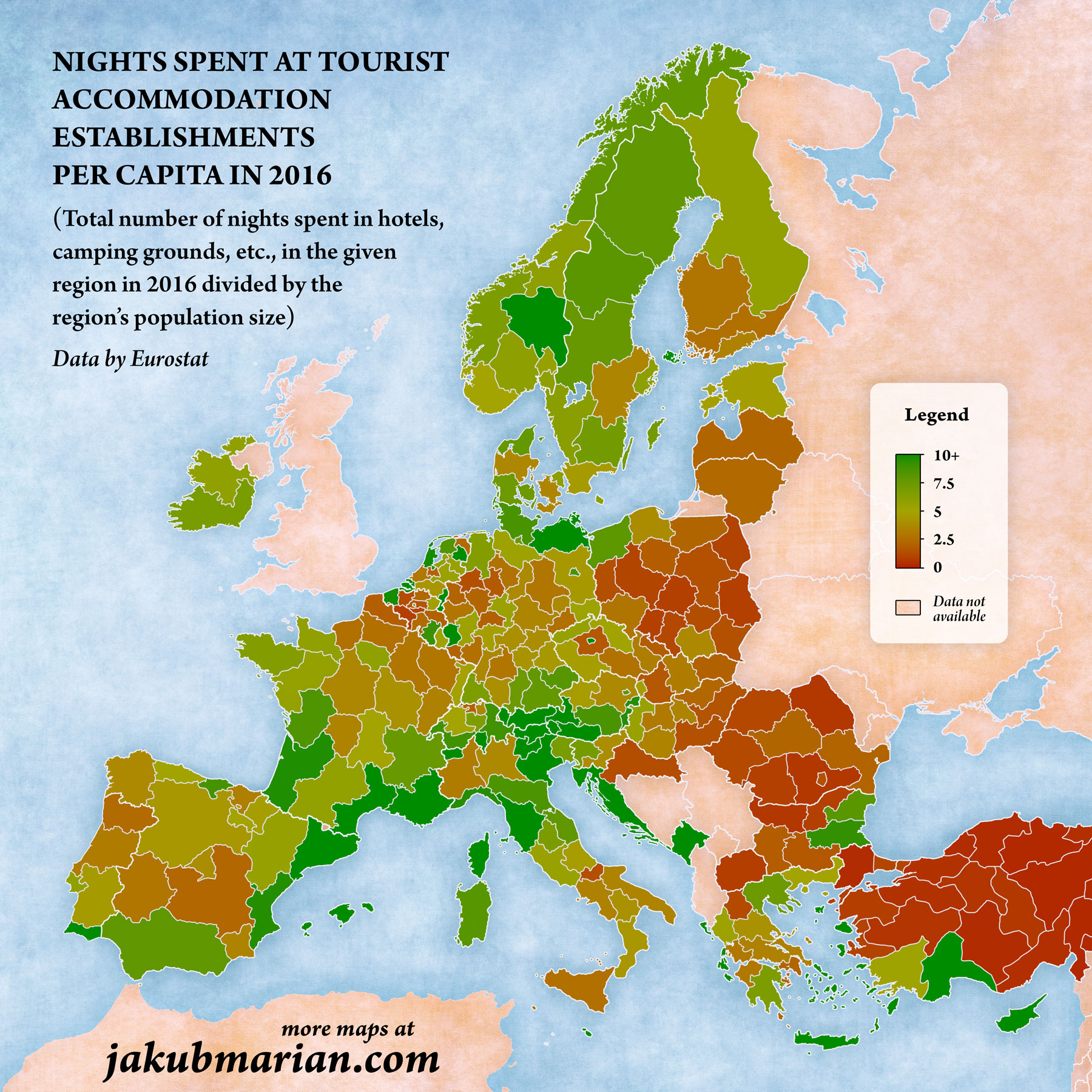The map below shows the number of nights spent at tourist accommodation establishments (which includes hotels, holiday cottages, camping grounds, etc.) in a region divided by the number of people living in that region. In other words, it is a kind of tourists-to-residents ratio, including tourists from other parts of the same region. The map is based on data provided by Eurostat. There are no data for the UK, for some reason.

The map does not really do justice to some of the regions above the “10+” cut-off point. There are five regions with more than 50 nights spent at tourist accommodation establishments per capita (which means, essentially, that more than 50/365 $\approx$ 14% of their population are tourists, barring “intra-regional” tourism):
| Region | Nights per capita |
|---|---|
| South Aegean, Greece | 70.7 |
| Ionian Islands, Greece | 62.0 |
| Balearic Islands, Spain | 61.6 |
| South Tyrol, Italy | 60.1 |
| Adriatic Croatia | 53.2 |
They are closely followed by Tyrol, Austria (49.4); Canary Islands, Spain (48.1); Algarve, Portugal (47.4); Salzburg, Austria (41.5); and Crete, Greece (39.8).
 Tip: Are you a non-native English speaker? I have just finished creating a
Tip: Are you a non-native English speaker? I have just finished creating a  Web App
Web App
